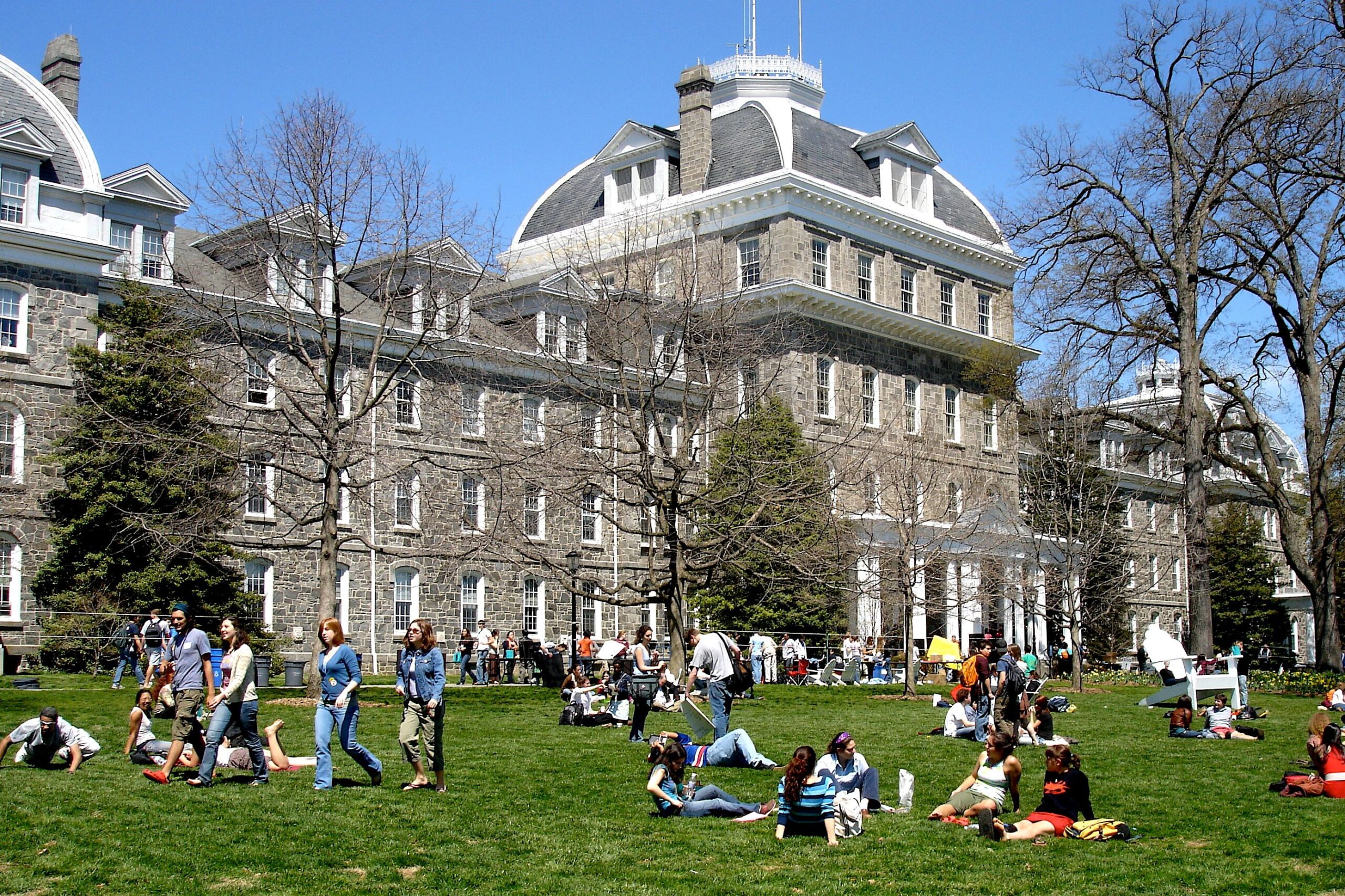

U.S. universities are overwhelmingly represented in a new ranking of the world’s best schools, with eight of the top 10 and more than half of the top 60 universities based in the United States.
U.S. universities ranked in the top 10 include well-known schools like Harvard, Stanford and the University of Pennsylvania, according to the Center for World University Rankings, based in the United Arab Emirates. The center ranks universities based on education quality, postgraduate employability, faculty and research.
Universities across the country also made the list, including public schools like Ohio State, Penn State and the University of North Carolina at Chapel Hill, and private institutions like Duke, New York University and Vanderbilt.
Fostering ingenuity
Buck Goldstein, co-author (with Holden Thorp) of the 2018 book Our Higher Calling: Rebuilding the Partnership between America and Its Colleges and Universities, says the academic freedom that faculty and students enjoy at U.S. universities is part of what makes these schools great. While the U.S. government provides financial support for research universities, it leaves academic researchers to follow their curiosity.
“The underlying culture of American universities is one that values creativity and innovation,” said Goldstein, an economics professor at the University of North Carolina-Chapel Hill. A chapter of the book he co-authored argues that U.S. universities are the best in the world.
Goldstein also credits the liberal arts curriculum offered at U.S. universities with exposing students to a broad range of subjects, from science and math to history, languages and the arts. A liberal arts education “prepares students to be lifelong learners, which is essential in a world that is changing at such a rapid rate,” he said. “Students will have an average of eight or more jobs during their careers, and many of those jobs haven’t even been invented yet.”

U.S. universities have also produced more Nobel Prize winners than schools anywhere else in the world, giving students the opportunity to learn from the brightest minds.
Finding the right fit
While being accepted to the most prestigious institutions is an honor, Goldstein noted that the wide variety of schools in the U.S. allows students to find the best fit. Rice University, in Houston, has a top architecture program, while Carnegie Mellon University, in Pittsburgh, and the Georgia Institute of Technology, in Atlanta, win praise for their robotics programs, according to education sources.
Meanwhile, film students have many attractive options, including New York University and the University of California, Los Angeles, which provide access to professors with experience in the entertainment industry.
U.S. universities are a top destination for international students, who cite strong academics and the value of a U.S. degree as compelling reasons to study in America, according to the Institute for International Education. More than 1 million international students attended U.S. colleges and universities last year, the U.S. Department of State says in its 2023 Open Doors Report on International Educational Exchange, issued in November.
Some schools offer tutors or other support for students who speak English as a second language. And “tools like the [U.S. Department of Education’s] College Scorecard illustrate the return on investment from degrees from hundreds of colleges and universities,” Goldstein said.
Learn more about studying in the United States .
